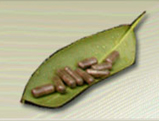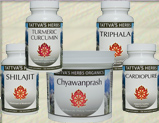 Loading... Please wait...
Loading... Please wait...Providing 25 Years Of Premium Service
Storewide Sale - Save 20%
Blog - rishis
Ayurveda: “Ancient Philosophy, Modern Research
Posted by Interview With Hari Sharma, M.D., Interviewed By Daniel Redwood D.C. on 8th Dec 2009
Hari Sharma, M.D., combines the clarity and rigor of a veteran medical scientist with the spiritual understanding of a wise elder. Dr. Sharmaâs establishment credentials are impressive. He is a diplomate of the American Board of Pathology, a Fellow of the Royal College of Physicians and Surgeons of Canada, and Professor Emeritus and former Director of the Division of Prevention and Natural Products Research at the Ohio State University College of Medicine. He has published over 100 research articles in widely-respected professional journals including Free Radical Biology and Medicine, and Nutrition Research.
But it is his well-informed advocacy of Ayurveda, the traditional medicine of his native India, that has made him an internationally known figure. In his book Freedom From Disease — How to Control Free Radicals, and Major Cause of Aging and Disease, Dr. Sharma describes the beginnings of his research on Ayurveda. He was present at an international meeting of physicians, convened in India in 1987 by Maharishi Mahesh Yogi for the purpose of initiating research on the ancient herbal formula Amrit Kalash. The formula, provided by one of the top Ayurvedic physicians in India (where Ayurveda has governmental recognition), was a combination of dozens of herbs, prepared in a specific manner involving hundreds of distinct steps.
As Dr. Sharma listened to what he considered to be a series of amateurish research ideas, he grew steadily more impatient. Finally unable to contain himself, he let everyone know exactly what was wrong with their proposals, and laid out a proposal consistent with the university-based research protocols he was familiar with from his work at Ohio State. At that point the Maharishi said, “Good. Now you should do it.”
To his credit, Sharma followed through, creating one of the more impressive bodies of natural medicine research in existence. The initial findings demonstrated that Amrit Kalash possessed antioxidant power up to 1000 times greater than vitamins C and E.
Dr. Sharma is a frequent lecturer at conferences worldwide, and has presented his research findings to the National Institutes of Health and the World Health Organization.
For further information:
Hari Sharma, M.D.
Department of Pathology
Ohio State University
Room M368SL
320 West 10th Avenue
Columbus, Ohio 43210
Hari Sharma Interview
Daniel Redwood: What principles form the foundation of Ayurveda?
Hari Sharma: Nature runs in cycles. Once there was a time of suffering and illness, and all the rishis [sages] got together. They wanted to find out how to eliminate the suffering, so they meditated together. When you meditate together you create a coherence, a transcendental coherent consciousness, and at that level of consciousness there is relationship between name and form. What it means is that if you ask a question, you have the answer. One of the rishis was named Bharadwaj, and he kept this question in his mind, about how to end suffering. And in this field of transcendental awareness, the whole thing was cognized.
DR: The entire body of Ayurveda emerged all at once?
HS: Yes. This knowledge of Ayurveda does not come through experimentation — it is cognized knowledge that was revealed in totality. It is not incomplete, where you then do some experiment here and there and change it. Itâs eternal knowledge.
Ayurvedas basic foundation is consciousness. Originally, consciousness is flat — nothing is happening. It is unbounded and infinite. Eventually consciousness creates fluctuations. It creates those vibrations, and the original vibrations it creates are the laws of nature. These laws of nature are the Vedas. Veda means knowledge. These laws of nature are structured in consciousness, they are not man-made. They are eternal, they are everywhere. These laws of nature function through the structure of DNA through different species.
DR: So each species is a unique expression of consciousness, manifest in matter.
HS: Different species are different languages . . . All DNA is basically the same, the same four bases that repeat themselves. But the majority of DNA is not active. The part which is active is activated through these laws of nature, through these vibrations, through these Vedas. Which will be different in different species. Then, as the consciousness is charging up the DNA, what happens? These vibrations, or fluctuations of consciousness, get materialized. That ultimately produces the body, whether it is an animal body, or plant body, or human body. Or the planets, the cosmos, or whatever. This is how it is produced, by the materialization of the fluctuations of consciousness.
Now, in the human body, different Vedas, or different laws of nature materialize at different rates, and that creates different structures. Like a liver, or a kidney. Each one of them is working at a different vibration. If these fluctuations or vibrations are distorted, and they are not in the right frequency, either due to psychic disturbances in the mind, or due to food, drink, the environment, or other influences — whatever it is — it distorts the vibrations of these organs.
I’m taking you one step higher now, okay? I’m talking on a different level. When the vibrations don’t work properly, that structure which was originally formed has different vibrations. Now it is not working at the same vibration, so it is diseased.
DR: So that the goal would be to restore the proper vibration?
HS: That’s right. And that is where this Vedic approach to health comes in. You’ve got 37 different areas of Veda and Vedic literature, with divisions and subdivisions. Each one of them has been identified with a certain area of physiology and anatomy in the human body. Similarly, the different cosmic counterparts — the planets, the constellations — each have been identified with certain areas of the system. So when the cosmic counterparts are not aligned properly, or the different areas of physiology are not working properly, disease is produced.
DR: If the principles of Ayurveda are eternal, has the practice of Ayurveda changed through the centuries?
HS: The practice of Ayurveda was distorted and dismembered, and was not used in totality. Foreign forces [the British and earlier invaders] asserted their own influence, and suppressed the old way of knowledge. But Ayurveda has been completely revived by Maharishi Mahesh Yogi, with Vedic scholars and Ayurvedic scholars. That is why it is known as Maharishi Ayurveda.
When you talk about the human body, the primary thing is consciousness. Consciousness has to work properly. That is where meditation, Transcendental Meditation, comes in. All of the research on meditation shows so much profound benefit. Because when the mind functions properly, the physiology reflects that.
DR: The Transcendental Meditation movement has been noteworthy for its ongoing commitment to serious scientific research. To what degree do you feel that data about the beneficial effects of TM can be generalized to meditation in all its variety?
HS: You cannot do that.
DR: Not at all?
HS: It’s just like with different drugs for hypertension. You can’t say that because one drug decreases the blood pressure, then all the other drugs do. They don’t. The basic thing which meditation is trying to do is to make you transcend, and merge with the infinite. The mind, which is localized, becomes unbounded, infinite. And when it becomes that, it naturally imbibes, becomes part of, the laws of nature. They become part of the mind. Any meditation, if it can do that, if it can make you transcend, will achieve the same results.
It’s like the sun is shining. And the clouds are there. What we are doing is to remove the cloudiness, to go beyond that. Now there are so many meditation techniques. You can get trapped into these different levels of consciousness, which will not have the same effect. The real thing is to transcend all that, to go to the home of all the laws of nature. If anything can achieve that, it will surely show the benefit.
DR: In recent years there has been an increasing amount of scientific research on Ayurvedic herbal formulas, some of it done by you and your colleagues at Ohio State Medical School. Could you summarize your major findings?
HS: There are two types of formulas in Ayurveda. The first is the rasayanas, which are generalized rejuvenation and longevity enhancers. According to the texts, these rasayanas are supposed to suppress aging, enhance immunity, and create homeostasis. The second type involves special formulas for different disorders.
You can think of the rasayanas as vitamins, but they are much more than that. I have done research on some of these formulas, including Maharishi Amrit Kalash (MAK).
DR: When you did the first studies on MAK, what did you find?
HS: We took some human volunteers, and studied some of their blood to see if we could prevent excessive platelet aggregation, or clotting of blood, in vitro [test tube]. I had done a lot of work before that on platelets, so I knew the technique. It was amazing. MAK did inhibit excessive platelet aggregation, very quickly.
DR: So the wisdom of nature is greater than the wisdom of human chemists?
HS: All the time.
DR: Ayurveda seems to call for reexamination of certain aspects of the American health food diet. For example, Ayurveda seems to frequently recommend cooked food in preference to raw food, and utilizes butter and sugar to prepare certain herbal formulas. Do you feel that such a reexamination is necessary?
HS: Ayurveda is not really talking about butter, but about clarified butter, or ghee. You heat up the butter, and skim off the proteins from the top, and the filtrate that comes out is called clarified butter. It can be kept at room temperature. I have personally done experiments ghee, and found that [despite its fat content] it does not increase cholesterol. Ghee normally contains antioxidants, which enable it to stay at room temperature and not get spoiled like butter does.
DR: So in moderation, ghee can be health-giving?
HS: Anything in moderation. [Laughter] Too much, and it can be dangerous.
DR: What about the question of cooked food versus raw food?
HS: The human constitution has three main functioning physiological principles: Vata, Pitta and Kapha. Pitta is the one which is concerned with digestion and metabolism. If somebody has a very strong Pitta constitution, he can easily digest uncooked food with no problem. But not everyone has that strong a digestive capacity. So if we eat too much uncooked raw food, we cannot digest it and we bloat with gas. Thatâs why Ayurveda says it is good to have cooked food.
The other thing is, the food should have all the different tastes. There are six tastes which have been identified [sweet, sour, salty, pungent, bitter and astringent], but the majority of what Americans eat is only sweet and salty. It’s very easy to take care of if you add a certain spicy mixture [churna] to your food. You just mix in some of that and all the tastes are satisfied. If the tastes are not satisfied, you can eat a lot of food, and the stomach will be bulging, but the hunger will not be gone. The reason is that all the different tastes, the different tastebuds, have not been satisfied.
DR: Do you feel that people can benefit from Ayurveda on a self-care basis, from reading the available books, or is professional care needed?
HS: They can get some information from books, but they can’t get all the information. Ayurveda is strongly prevention oriented. Many diseases are due to wrong eating habits, wrong daily routines, wrong seasonal routines. as well as eating at the wrong time, or eating the main meal at the wrong time [Ayurveda suggests eating the main meal at mid-day]. The same food is not good for everybody. The same food will be good for one person and damaging for another person.
DR: This idea of different people needing different foods is an insight that is conspicuously absent from most contemporary teachings on nutrition.
HS: You cannot have it where a particular food is good for everybody. There is nothing like that. Once you know your constitution, which is the predominately functioning principle in your physiology, then you know which foods match your body type, and you know how to balance it. So it takes a certain amount of knowledge and education, and then the majority of problems can be manipulated by daily routine and proper diet.
DR: Could you describe what an Ayurvedic practitioner learns from feeling a patients pulse?
HS: There are three different principles which govern the physiology of the body — Vata, Pitta and Kapha. Vata is basically activity; Pitta is metabolism, digestion, the endocrine system and the skin; and Kapha is structure and cohesiveness. These work at different sites in the body, and each one is divided into five subdivisions. Then there are different structures in the body, different tissues. Ayurveda identifies seven different transformations of the tissue. The plasma, blood, muscle fat, and so on.
When you take the pulse, the pulse is connected to the human heart. The information coming into the heart is translated into the pulse. Also, whatever is happening in the mind, those fluctuations of consciousness are also related to the pulse, because the pulse is related to the nerves. So basically, what is present in the body and mind is represented in the pulse. [The practitioner discerns] the functioning of the three principles — Vata, Pitta and Kapha. Which is predominant, which is balanced, which is not balanced. You can actually feel this in the pulse. Then you can find out how the subdoshas (the five different subtypes of Vata, Pitta and Kapha) are functioning, and how the different tissue transformations are functioning. So you can get a lot of information from these pulses. It takes training, and some time and experience, but once you have that experience and training, you can find out a lot just from taking the pulse. I have seen it. Itâs a very profound experience. Itâs not just the pulse rate.
DR: What goals do you have for the near future, or far future?
HS: My goal now in life is to educate physicians, chiropractors, osteopaths, psychologists and other professionals in the basic principles and practices of Ayurveda, and also to educate the public. Because health can be maintained and disease can be prevented. Though technology is advancing, people are still falling sick. Health care costs keep on increasing, and there is no way to reduce that unless you introduce prevention. The best prevention is Ayurveda, because it is a very comprehensive system. Since it is based on natural medicine, which is devoid of toxicity, how could it be better? The interest is rising, and they are now starting medical at medical colleges.
DR: There’s one more thing I wanted to ask. I finally got off coffee totally, a few months ago and I used Rajas Cup [an Ayurvedic herb tea] as a substitute to make the transition. I drink two cups a day. Is there any problem with that?
HS: None at all. It has very profound effects on the nervous system, and also it is very soothing to the stomach. You are doing just the right thing.
DR: Coffee is very widely used in our society. I have had patients who drink ten or twenty cups a day. Do you feel it is harmful to people?
HS: Overstimulation is harmful. Then you are working in high gear all the time, and you don’t even realize it.
Daniel Redwood, a chiropractor and writer who lives in Virginia Beach, Virginia, is the author of A Time to Heal: How to Reap the Benefits of Holistic Health. A collection of his writing is available on the WorldWideWeb at http://www.doubleclickd.com/danhome.html. He can be reached by e-mail at Redwoods@infi.net.
©1996 Daniel Redwood, D.C.
Ayurveda, Food, and You
Ayurveda is a natural system of medicine, using diet, herbs, cleansing and purification practices, yoga, astrology and gemstones to bring about healing.This article focuses on the dietary principles of Ayurveda and how an ayurvedic diet can both prevent and heal disease. Ayurveda is from India and is at least 5,000 years old, and still as [...]















